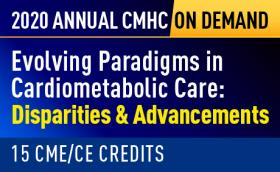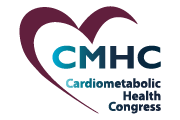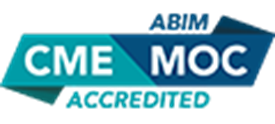
2020 CMHC Annual On Demand - Evolving Paradigms in Cardiometabolic Care: Disparities & Advancements
The global epidemic of metabolic syndrome, a constellation of cardiometabolic risk factors, and that of obesity, type 2 diabetes, atherosclerosis, chronic kidney disease, cardiovascular disease, and NAFLD/NASH, have become the modern-day health hazard across the world. Lifestyle factors, including a lack of physical activity and proper nutrition can further exacerbate the impacts of cardiometabolic risk or disease, which is showing no signs of slowing down.
Overall, the numbers are particularly striking. There are more than 463 million adults living with diabetes worldwide, and the number is expected to rise to more than 700 million by 2045. Furthermore, 232 million have undiagnosed diabetes with an additional 374 million having prediabetes. The increasing prevalence of overweight and obesity (now estimated to affect 2 billion adults, or nearly 30% of the world population), high cholesterol (>40% of the world’s population), and hypertension (>1 billion), together with type 2 diabetes, are some of the major drivers of morbidity and mortality worldwide. They affect multiple organ systems, including the heart, liver, and kidneys, spanning several disease domains and outcomes.
Although clinicians are learning more about the interconnections between these conditions and risk factors, the application of these principles to patient care remains in its infancy. As these diseases and risk factors exist in a continuum, they cannot be treated in silos, which is unfortunately what tends to happen in clinical practice. CMHC has been at the forefront of looking at the whole spectrum of cardiometabolic disease, including obesity, diabetes, lipids, hypertension, cardio-renal disease, and practical ways to address them.
The recorded sessions from the 2020 Annual CMHC Live Online: Evolving Paradigms in Cardiometabolic Care: Disparities & Advancements will translate the latest cutting-edge medical research into practical, clinical strategies for preventing, delaying, diagnosing, treating, and managing the whole spectrum of cardiometabolic disorders. The goal is to provide the medical community with evidence-based interventions that they can apply immediately in clinical practice to improve health outcomes and quality of life for the growing numbers of patients at increased cardiometabolic risk.
A full agenda is provided here.
Target Audience
The 2020 Annual CMHC On Demand activity is designed for advanced level clinicians responsible for the prevention, diagnosis, and management of cardiometabolic risk including cardiologists, endocrinologists, diabetologists, lipidologists, pharmacists, primary care clinicians (PCPs), nurse practitioners (NPs), physician assistants (PAs), and other allied health professionals.
Learning Objectives
After completing this activity, the participant should be better able to:
- Discuss the interrelationships among cardiometabolic risk factors and their impact on the development of cardiometabolic diseases, including diabetes, dyslipidemia, hypertension, obesity, kidney disease, and cardiovascular disease
- Interpret the latest evidence and guidelines for the prevention, screening, and treatment of the complex patient with cardiometabolic risk or cardiometabolic disease
- Outline strategies aimed at timely screening and prevention of cardiometabolic disease, including assessment of risk factors and biomarkers, and lifestyle modifications
- Develop individualized treatment regimens for patients with cardiometabolic disease based on the efficacy and safety of current and new pharmacotherapies, patient comorbidities and preferences in order to optimize outcomes Summarize recent evidence for emerging therapies in order to stay current with the most recent updates in the cardiometabolic field
- Employ strategies that promote patient-centered care, including patient communication and education, in order to optimize adherence to treatment regimens
- Recognize the impact of ethnicity and race in risk assessment and management of patients with cardiometabolic disease or cardiometabolic risk
FACULTY
Full faculty listings are provided here.
DISCLOSURE OF CONFLICTS OF INTEREST
Postgraduate Institute for Medicine (PIM) requires instructors, planners, managers, and other individuals who are in a position to control the content of this activity to disclose any real or apparent conflict of interest (COI) they may have as related to the content of this activity. All identified COI are thoroughly vetted and resolved according to PIM policy. PIM is committed to providing its learners with high quality activities and related materials that promote improvements or quality in healthcare and not a specific proprietary business interest of a commercial interest.
Faculty
A full listing of faculty disclosures are provided here.
Planners and Managers
The PIM planners and managers have nothing to disclose. The CMHC planners and managers have nothing to disclose.
DISCLOSURE OF UNLABELED USE
This educational activity may contain discussion of published and/or investigational uses of agents that are not indicated by the FDA. The planners of this activity do not recommend the use of any agent outside of the labeled indications. The opinions expressed in the educational activity are those of the faculty and do not necessarily represent the views of the planners. Please refer to the official prescribing information for each product for discussion of approved indications, contraindications, and warnings.
EDUCATIONAL GRANT SUPPORT
The 2020 Annual CMHC On Demand: Evolving Paradigms in Cardiometabolic Care: Disparities & Advancements is supported in part by an independent and unrestricted educational grant from Merck Sharp & Dohme Corp.
JOINT ACCREDITATION STATEMENT


In support of improving patient care, this activity has been planned and implemented by the Postgraduate Institute for Medicine and CMHC. Postgraduate Institute for Medicine is jointly accredited by the Accreditation Council for Continuing Medical Education (ACCME), the Accreditation Council for Pharmacy Education (ACPE), and the American Nurses Credentialing Center (ANCC), to provide continuing education for the healthcare team.
PHYSICIAN CONTINUING MEDICAL EDUCATION
The Postgraduate Institute for Medicine designates this enduring material for a maximum of 15 AMA PRA Category 1 Credits™. Physicians should claim only the credit commensurate with the extent of their participation in the activity.
CONTINUING PHARMACY EDUCATION
Postgraduate Institute for Medicine designates this continuing education activity for 15 contact hour(s) (1.5 CEUs) of the Accreditation Council for Pharmacy Education.
This is an application-based activity. Universal Activity Number (UAN): JA4008162-9999-20-2490-H01-P
CONTINUING NURSING EDUCATION
The maximum number of hours awarded for this Continuing Nursing Education activity is 15 contact hours. Pharmacotherapy contact hours for Advanced Practice Registered Nurses will be designated on your certificate.
CONTINUING DIETICIAN EDUCATION
This program offers 15 CPEUs for dieticians.
ABIM MOC CERTIFICATION

Successful completion of this CME activity, which includes participation in the evaluation component, enables the participant to earn up to 15 MOC points in the American Board of Internal Medicine's (ABIM) Maintenance of Certification (MOC) program. Participants will earn MOC points equivalent to the amount of CME credits claimed for the activity. It is the CME activity provider's responsibility to submit participant completion information to ACCME for the purpose of granting ABIM MOC credit.
DISCLAIMER
Participants have an implied responsibility to use the newly acquired information to enhance patient outcomes and their own professional development. The information presented in this activity is not meant to serve as a guideline for patient management. Any procedures, medications, or other courses of diagnosis or treatment discussed or suggested in this activity should not be used by clinicians without evaluation of their patient's conditions and possible contraindications and/or dangers in use, review of any applicable manufacturer's product information, and comparison with recommendations of other authorities.
METHOD OF PARTICIPATION & REQUEST FOR CREDIT
There is registration fee for this enduring educational activity, to register please click here. During the period December 15, 2020 through December 15, 2021, participants must read the learning objectives and faculty disclosures and study the educational activity. An evaluation link will be provided on the meeting website.
If looking to obtain MOC credits, you must successfully complete the post-test, with a score of 75% or higher, and then complete the online evaluation.
PLEASE NOTE: Only full credit is available for this activity, there is no partial credit.
For Live Meeting Attendees: All attendees of the live 2020 Annual Meeting can receive complimentary access to these recordings. If you need to request the access code, or if you need to claim credit for attending the live meeting, please contact [email protected]
For questions about the accreditation of this activity, please visit www.pimed.com.
Media: Internet
Available Credit
- 15.00 ACPE Pharmacy
- 15.00 AMA PRA Category 1 Credit™
- 15.00 ANCC
- 15.00 CDE
- 15.00 Participation
For Live Meeting Attendees: All attendees of the live 2020 Annual Meeting can receive complimentary access to these recordings. If you need to request the access code, please contact [email protected]
For New Learners: There is registration fee for this enduring educational activity, to register please click here.
Required Hardware/software
This online activity must be viewed with the latest version of Chrome, Firefox or Internet Explorer. If you do not have these browsers, you can download Chrome here, Firefox here and Internet Explorer here. Optimal viewing requires a broadband connection of at least 3 Mbps and a 1 GHz processor with 1 GB RAM.

 Facebook
Facebook X
X LinkedIn
LinkedIn Forward
Forward